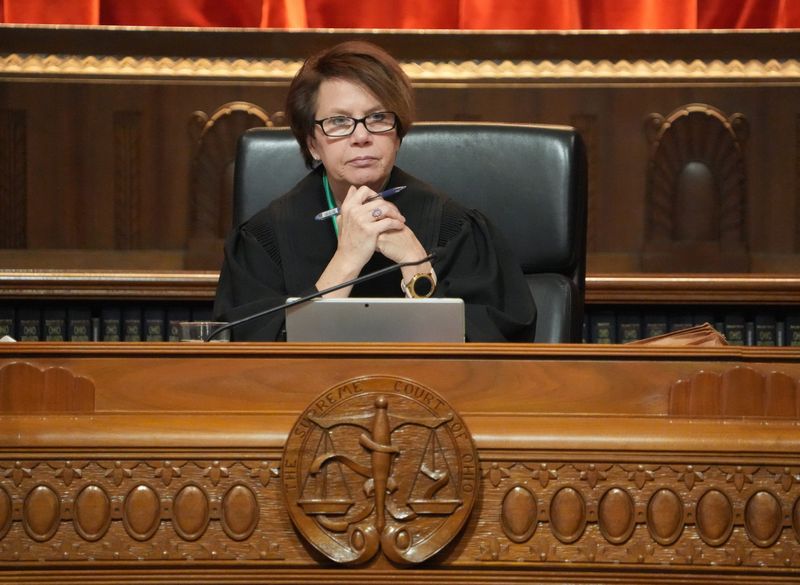The Ohio Supreme Court on Nov. 25 ruled that police officers’ names may be kept confidential if they’re attacked on the job, giving them privacy rights afforded to crime victims.
In a majority opinion written by Justice Pat DeWine, the court held that Columbus Police lawfully withheld the names of officers who were involved in a shootout with armed robbery suspects on I-70 in July 2023. One officer was shot five times and seriously injured. One suspect died.

In response to a public records request, the Columbus Police Department released parts of body camera footage, redacting it to hide the officers’ identities and ending the video before the shooting started.
The Columbus Dispatch sued to compel release of unredacted footage.
“If you understand the history of Marsy’s Law, you know that it was not intended to shield the names of police officers involved in fatal shootings,” said Beryl Love, regional editor for the USA TODAY Network Ohio. “The court today green-lighted this overreach and in doing so reduced the transparency that is vital to preserve the community’s trust in law enforcement.”
The case involves how to interpret Marsy’s Law, a voter-approved amendment to the Ohio Constitution that is supposed to protect and support crime victims.
Justices Pat Fischer and Jennifer Brunner dissented in part with the majority opinion. Brunner said that officers on duty don’t have the expectation of privacy.
Police agencies across Ohio have used Marsy’s Law as grounds for not disclosing the names of officers involved in fatal shootings and use of force. In cases where officers have been assaulted or injured in those incidents, they’re categorized as crime victims and kept confidential.
In a separate but related case, Nadine Young asked the Ohio Supreme Court to order the Blendon Township Police Department to disclose the names of the two officers involved in fatally shooting her daughter, Ta’Kiya Young, in August 2023 in a Kroger parking lot. The police department argued that Young assaulted officers with her car, making them the victims.
Young’s case was placed on hold while the court considered the Dispatch lawsuit. A jury acquitted Blendon Twp. police officer Connor Grubb, who was charged in the shooting death of Young’s daughter.
In 2023, the Florida Supreme Court unanimously ruled that Marsy’s Law doesn’t explicitly shield the identities of any crime victims, including police officers.
What is Marsy’s Law?
In November 1983, Marsy Nicholas, a 21-year-old college student, was stalked and murdered by her ex-boyfriend in California. A week after her funeral, her mother ran into the ex-boyfriend in a grocery store, unaware that he had been released on bail, according to her family.
Her brother, Henry T. Nicholas, III, a self-made tech billionaire, launched a campaign to enshrine rights for crime victims into state constitutions around the country. He started in 2008 in California and has since won ballot campaigns in a total of 18 states. He has spent more than $100 million on the campaigns.
In 2017, 83% of Ohio voters said yes to Marsy’s Law.
Marsy’s Law expands the definition of crime victims, requires notification to victims of their rights, allows victims to request to be notified of hearings and case developments, and gives victims the ability to be heard at more stages of a case.
Ohio’s ‘sunshine’ laws
Ohio has “sunshine” laws designed to hold governments accountable and help the public know what their governments are doing.
The Open Records Act lays out what records − budgets, meeting minutes, personnel files, police reports and more − must be disclosed upon request. The Open Meetings Act requires public bodies to hold their meetings and make final decisions in the open. Both laws have scores of exceptions, carved out by legislators and legal rulings issued over the years.
State government reporter Laura Bischoff can be reached at lbischoff@gannett.com and @lbischoff on X.
This article originally appeared on The Columbus Dispatch: Ohio Supreme Court says police officers have privacy rights, shielding their names
Reporting by Laura A. Bischoff, Columbus Dispatch / The Columbus Dispatch
USA TODAY Network via Reuters Connect


